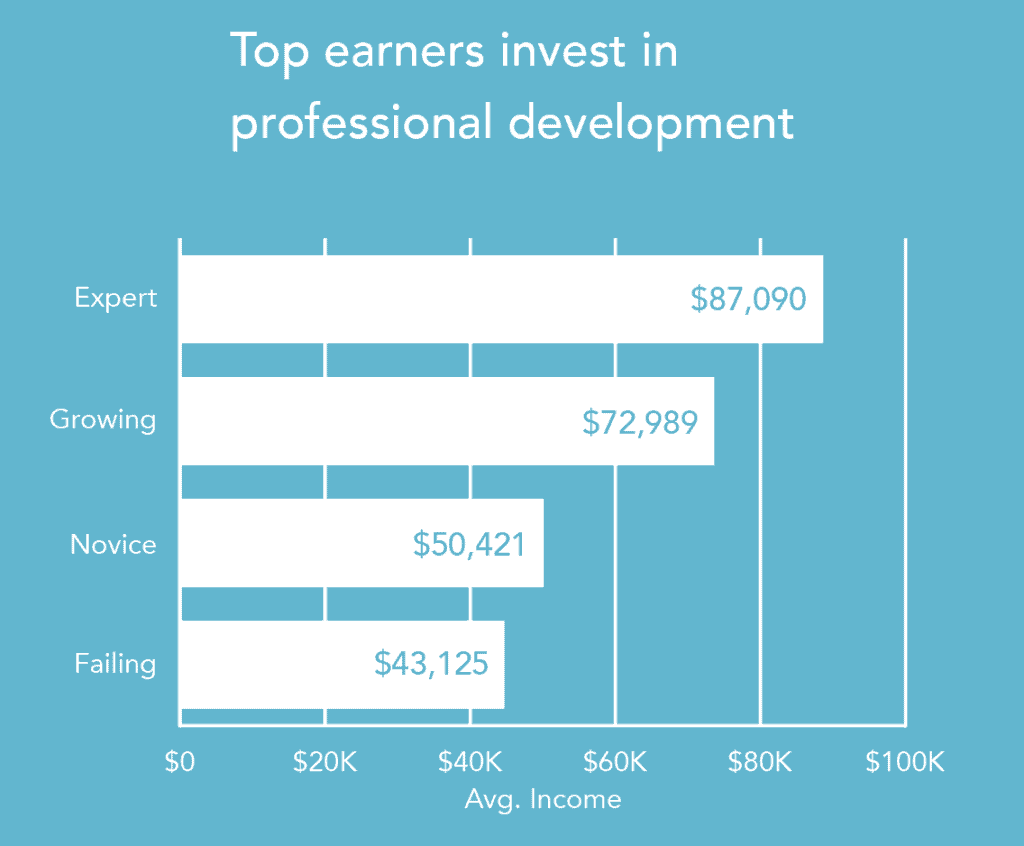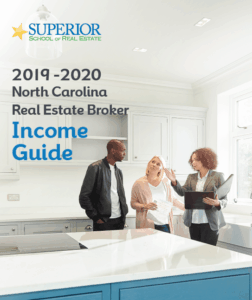
Below are just a few of those insights. (To access the full guide for free, click this link).
Insight #1: Real estate income is on the rise
Despite fluctuations in the real estate market, 54% of real estate brokers reported earning more in 2018 than they did in 2017. This statistic is even higher for real estate brokers-in-charge, with 69% of brokers-in-charge reporting earning more in 2018 than they did the previous year.
One of the great things about real estate is that many times you get out what you put in. Whereas with salaried jobs you will earn a set amount each year, with real estate the income potential is unlimited. Download the North Carolina Broker Income Guide to find tips and tricks to increase your income potential.
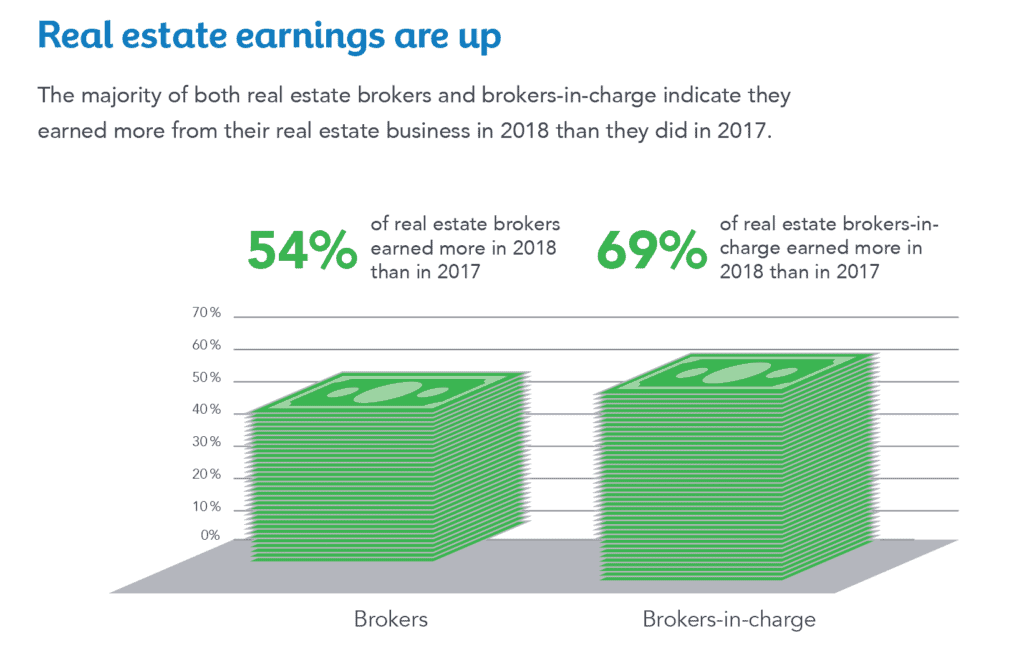
Insight #2: Top earners set goals for themselves
In this new question from last year’s survey, we asked participants to assess themselves on their goal-setting capabilities. Those who responded as experts in goal-setting earned an average of $49,832 more compared to those who indicated that they fail at setting goals.
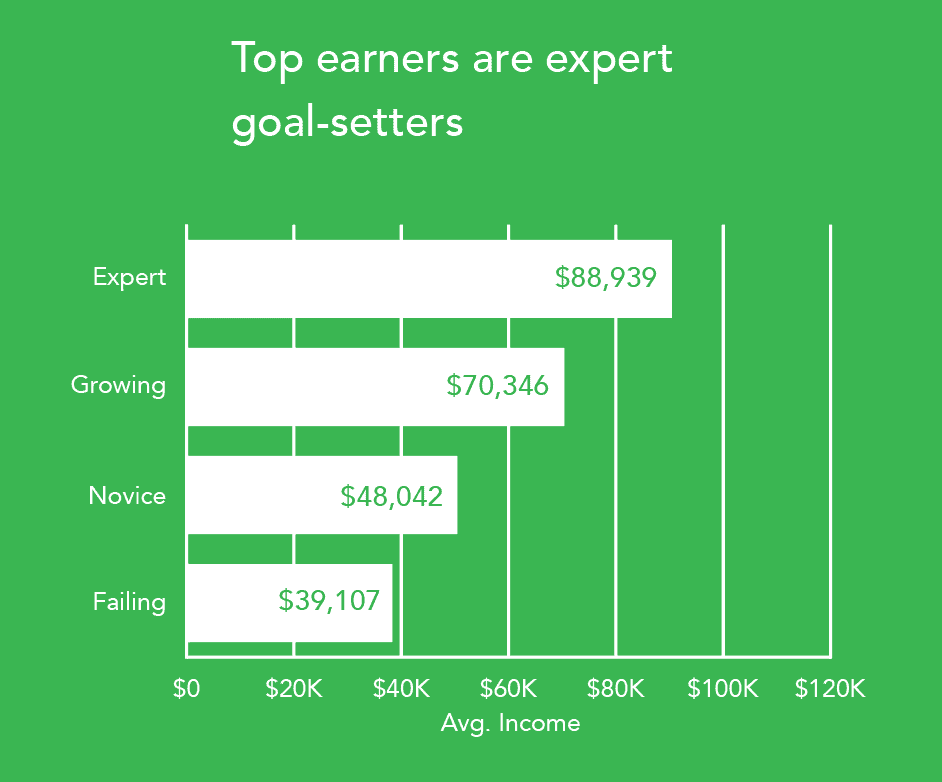
Insight #3: It pays to specialize
Another way that brokers in North Carolina earn more money is to specialize in a niche. According to our survey, the most profitable niche was luxury real estate with an average income of $99,085, which is $79,710 more than those who indicated they have no specialization.
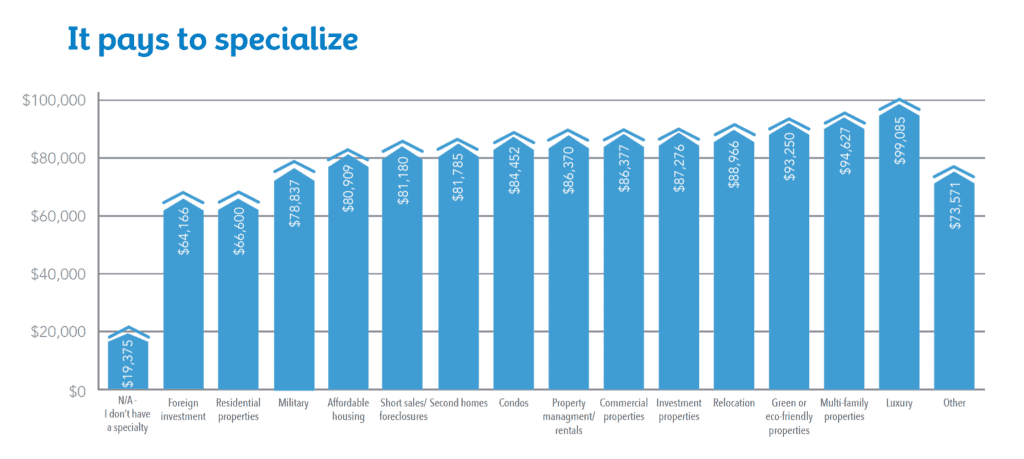
Insight #4: Investing in yourself is money well spent
While some individuals may be hesitant to invest in their professional development and education, those who do see significant returns. Participants who indicated that they were experts at investing in professional development reported an average income of $87,090, while those who indicated that they failed in this area reported an average income of $43,125.
There are many ways you can invest in your professional development. From taking online classes to attending conferences and webinars to having a personal coach guide your way, investing in yourself has never been easier and more affordable.
